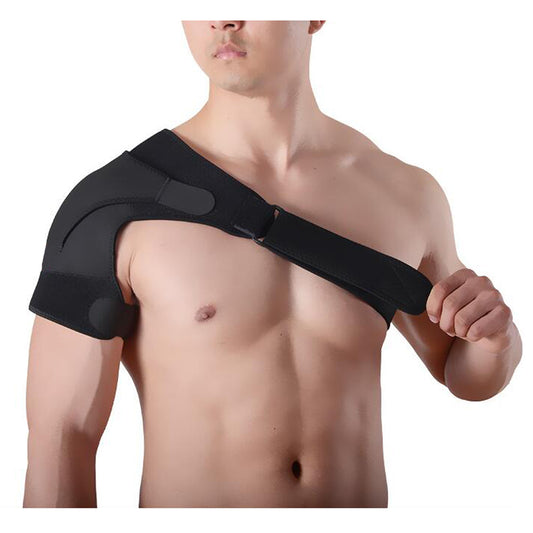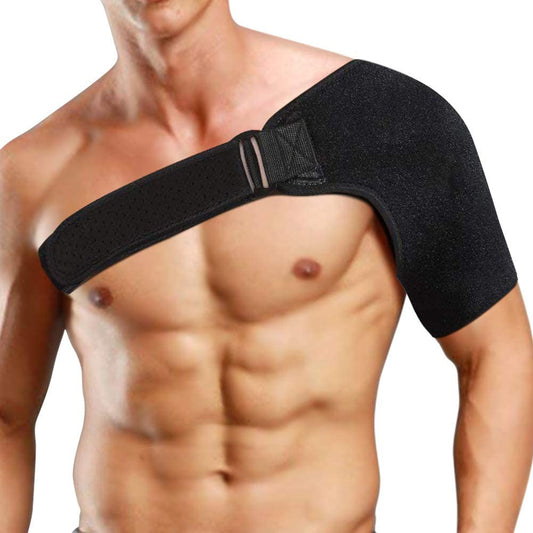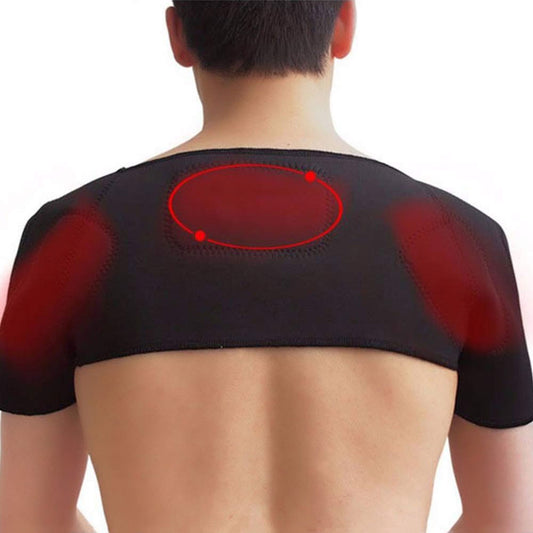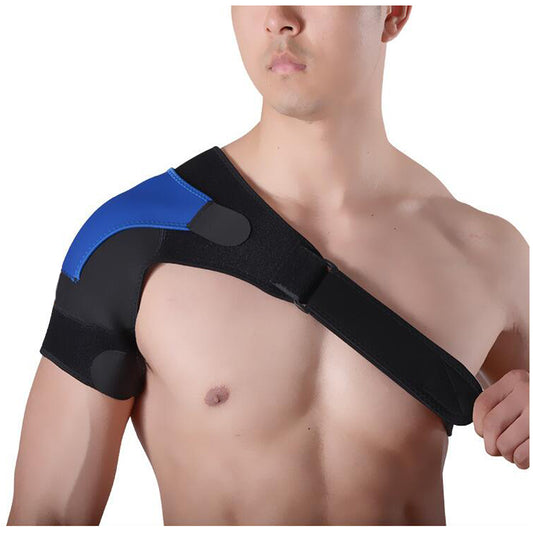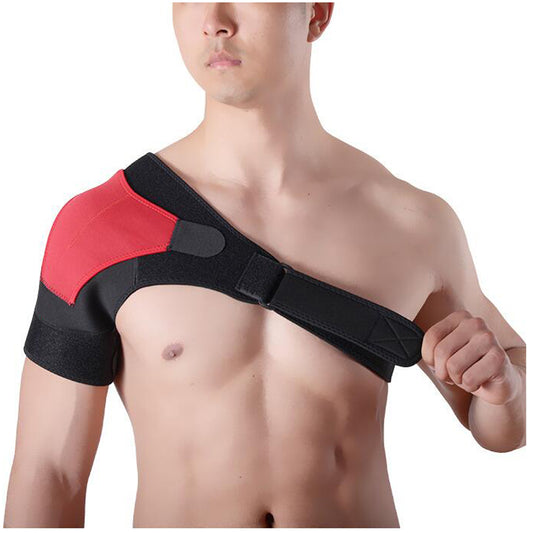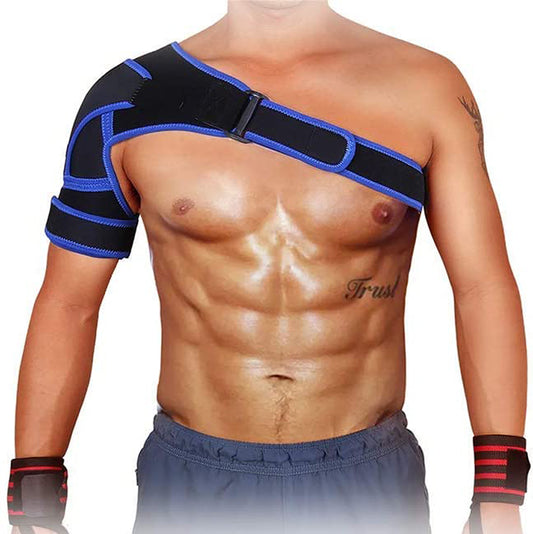-
Shoulder Brace for Men and Women for Torn Rotator Cuff Support,Tendonitis, Dislocation, Bursitis, Neoprene Shoulder Compression Sleeve Wrap
Regular price $16.99 USDRegular price$25.99 USDSale price $16.99 USDSale -
Compression Shoulder Support Brace, Adjustable Neoprene Upper Arm and Shoulder Wrap Pain Relief for Rotator Cuff Shoulder Tear Injury AC Joint Dislocation Prevention and Recovery
Regular price $26.99 USDRegular price$39.00 USDSale price $26.99 USDSale -
Tourmaline Warm Brace Self Heating Massage Belt for Neck Shoulder Support Brace
Regular price $21.99 USDRegular price$21.99 USDSale price $21.99 USD -
Compression Recovery Shoulder Brace - Adjustable Fit Sleeve Wrap Men Women. Relief for Shoulder Injuries, Tendonitis
Regular price $26.99 USDRegular price$39.00 USDSale price $26.99 USDSale -
Shoulder Support Brace for Men and Women Athletic | Orthopedic Care Shoulder Brace for Torn Rotator Cuff
Regular price $26.99 USDRegular price$39.00 USDSale price $26.99 USDSale -
Shoulder Brace Adjustable Rotator Cuff Support for Men or Women Breathable Neoprene Compression Sleeve Wrap Left or Right Shoulder Medium
Regular price $36.99 USDRegular price$36.99 USDSale price $36.99 USD
Collection: Optimal Shoulder Support Solutions for Injury Recovery and Pain Relief
Comprehensive Guide to Shoulder Braces: Your Path to Pain-Free Movement
If you're struggling with shoulder pain or recovering from an injury, a shoulder brace might be the key to resuming your active lifestyle. Shoulder braces are designed to provide stability, support, and compression, helping to alleviate pain and promote healing. In this guide, we explore who can benefit from shoulder braces, why they are essential, how to determine your need for one, product characteristics, common symptoms these braces alleviate, frequently asked questions, and their advantages.
Who Needs a Shoulder Brace?
- Athletes: Individuals engaged in sports activities prone to shoulder injuries, such as tennis, basketball, or swimming. Shoulder braces provide support and prevent further strain.
- Professionals with Physical Jobs: Those performing repetitive shoulder movements in their work, like construction workers, can benefit from additional support.
- Post-Surgery Patients: After shoulder surgery, a brace can support recovery and reduce the risk of re-injury.
- People with Chronic Shoulder Issues: Individuals with conditions such as rotator cuff tear, shoulder impingement, or arthritis.
Why Do You Need a Shoulder Brace?
- Injury Prevention and Recovery: Shoulder braces help to stabilize joints, reducing the risk of injuries during physical activities.
- Pain Relief: They provide compression which helps to alleviate pain from conditions such as tendonitis or bursitis.
- Enhanced Healing: By limiting shoulder movements, these supports aid in faster recovery.
How to Determine if a Shoulder Brace is Right for You
- Persistent Pain or Discomfort: If daily activities cause shoulder discomfort, a brace may offer relief.
- History of Shoulder Injuries: Previous injuries or surgeries may necessitate additional support for the shoulder.
- Consult Health Professionals: For a diagnosis and recommendation, seek advice from a doctor or physical therapist.
Characteristics of ZSZBACE Shoulder Braces
- Adjustable Fit: Our braces provide customizable support with adjustable straps, ensuring a snug and comfortable fit.
- Breathable Materials: Made from high-quality, breathable neoprene, these braces offer compression without causing discomfort.
- Versatile Design: Suitable for both men and women, and can be worn on either shoulder.
- Professional Grade Manufacturing: We at ZSZBACE have years of experience in creating reliable, durable shoulder braces.
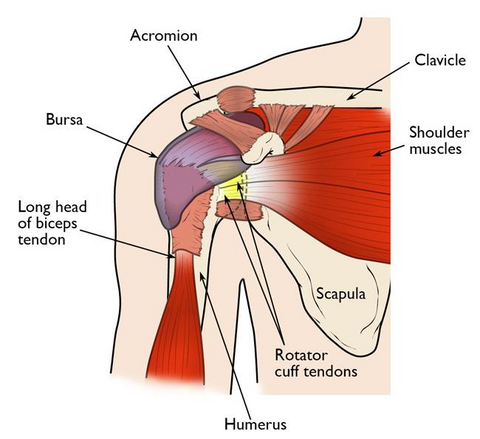
Common Symptoms Addressed by Shoulder Braces
- Pain from Rotator Cuff Injuries: Braces help manage pain and facilitate healing by restricting unwanted arm movements.
- Inflammation and Swelling: Compression can provide relief from bursitis or tendonitis.
- Instability and Weakness: They offer support for shoulder instability or recurring dislocations.
Common Questions About Shoulder Braces
1. Can a shoulder brace be used for multiple conditions?
Yes, they are versatile and can aid various issues such as rotator cuff injuries, joint dislocations, and tendonitis.
2. How long should I wear a shoulder brace?
Consult your healthcare provider, but typically they should be worn during activities that trigger pain or according to medical advice post-surgery.
3. Are shoulder braces effective for preventing injuries?
Yes, especially for individuals engaged in sports or physically demanding activities. They offer support which can prevent overuse injuries and help in recovery.
Enhancements with Shoulder Braces
- Improved Posture and Movement: By maintaining correct posture, shoulder braces can enhance overall upper body mechanics.
- Confidence in Activity: Knowing your shoulder is supported can boost confidence and performance in activities.

In conclusion, whether recovering from an injury or seeking pain relief, ZSZBACE shoulder braces offer unparalleled support and comfort, helping you return to your normal activities with confidence. Our team is dedicated to providing high-quality products and professional customer service to support your journey to recovery.

